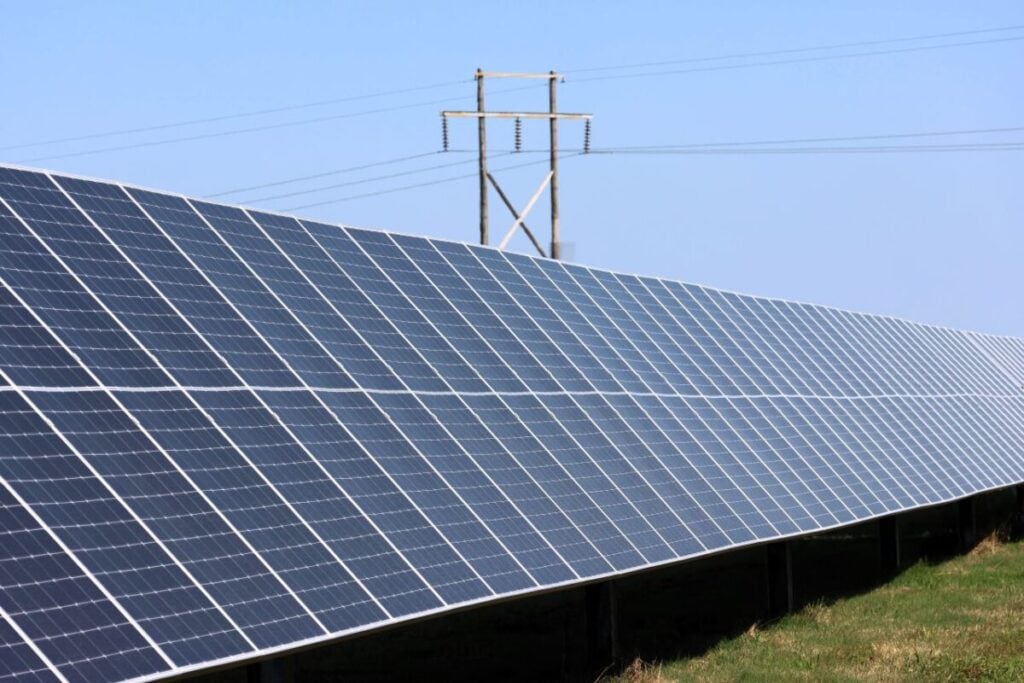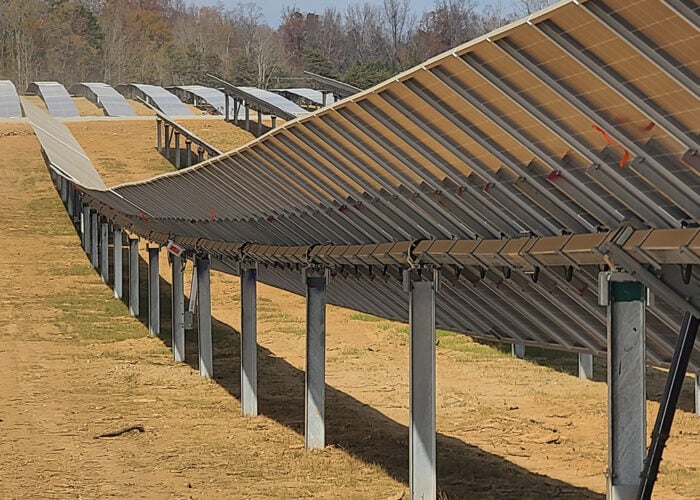
Developers in the southern US reached significant milestones last week, with Entergy commissioning a 100MW project in the state of Arkansas, while Ammper Power and Elawan both signed power purchase agreements (PPAs) regarding projects with a combined capacity of 87MW in the state of Texas.
Entergy commissions 100MW Walnut Bend solar project
US renewable power developer Entergy has commissioned its fourth solar project in the US state of Arkansas, the 100MW Walnut Bend Solar Energy Center, which has pushed the company’s total investment into the state above US$300 million.
Unlock unlimited access for 12 whole months of distinctive global analysis
Photovoltaics International is now included.
- Regular insight and analysis of the industry’s biggest developments
- In-depth interviews with the industry’s leading figures
- Unlimited digital access to the PV Tech Power journal catalogue
- Unlimited digital access to the Photovoltaics International journal catalogue
- Access to more than 1,000 technical papers
- Discounts on Solar Media’s portfolio of events, in-person and virtual
The latest project uses bifacial solar panels to maximise electricity generation, and has the same capacity as the company’s other two largest projects in the state, the Chico Solar project and the Searcy Solar farm.
Entergy expects to commission an additional 430MW of solar capacity in the state before the end of the year, alongside an additional 400MW of solar capacity in 2025, as the company looks to expand its presence in Arkansas. It acquired the Walnut Bend project from developer Invenergy, which led development, engineering and construction at the project.
“Our investments in these generation resources are a key part of keeping the rates our customers pay below the regional and national averages and enables us to provide reliable, affordable and sustainable service to our customers throughout the state,” said Entergy Arkansas president and CEO Laura Landreaux.
Ammper Power to sell power from upcoming Texas project
In Texas, Ammper Power has signed a PPA to acquire all of the electricity set to be generated at a project in the state, which is expected to reach commercial operation in the fourth quarter of 2025. The company noted that it would “facilitate the sale of solar energy” to users in Texas via the Electric Reliability Council of Texas (ERCOT) grid, which accounts for 90% of Texas’ energy consumers.
While the company did not specify a number of details, including the developer of the project or its offtaker, beyond describing them as “commercial and industrial customers and governmental organisations”, the news will be a positive development for the Texas grid, which saw record-breaking solar figures earlier this year, but has endured a share of grid connection and reliability challenges in recent years.
Ammper Power is the US subsidiary of Mexican power company Ammper Energia, which has invested in power generation capacity in its home country, and has sought to expand its presence elsewhere in the North American market in recent years.
“This transaction illustrates Ammper’s commitment to the ERCOT market and exemplifies its dedication to driving the energy transition and empowering customers to utilize sustainable solutions,” said John Werner, vice president of business development at Ammper. “By offering renewable energy options like solar power, we are not only capable of supporting our customers’ goals but also fostering a cleaner, more sustainable energy future for Texas and beyond.”
Elawan signs PPA to supply Google with electricity
Spanish developer Elawan Energy has signed a PPA with Google to supply electricity from a solar project at “an advanced stage of development” in Texas. The company currently operates a renewable power portfolio of 1.8GW, with an additional 8GW in its pipeline, and plans to commission its Texas facility in 2026.
The deal was arranged through LevelTen Energy’s Accelerated Process (LEAP), a programme implemented by LevelTen Energy last year to reduce delays in the signing of renewable power PPAs. The company notes that the use of its programme, which includes standardised PPA formats “to reflect the realities of current market conditions”, can cut the time taken to conclude a PPA by as much as 80%.
The growth of this programme could be of particular significance for the solar sector, with an increasing interest in corporate PPAs, but a generation of companies new to the solar industry having to learn the intricacies of offtake agreements over short periods. Earlier this year, Jason Kaminsky, CEO of kWh Analytics, told PV Tech Premium that “[creating] the right frameworks” is a key priority for the solar industry and the PPA space, and projects like LEAP could be an important means to that end.
The breadth and depth of solar PPAs is evident in the range of deals being announced over the summer, with Adani and Microsoft both signing significant deals in recent months.







